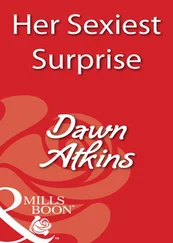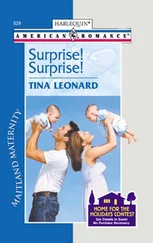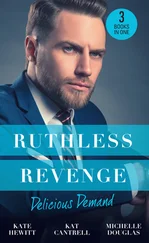Isabelle’s father, Eli Rothman, sitting midway up the steep semicircle, wishes they had arrived earlier so they could have gotten better seats, but Ruth takes forever to get herself ready, as if each event they attend is her opening night. And he is worried about Isabelle and this unseasonable heat. How long do they have to be in those heavy black robes? Has she made sure to drink lots of water this morning and slather her face with sunscreen? He would guess not. He glances at his wife, who is fanning herself with the program and scanning the crowd, looking…well, dissatisfied is the best way he can describe it. The three boys sit between them. It is always the way — the children between them, even though the children are practically grown. Aaron is seventeen and will graduate from high school next year, and the twins are almost sixteen.
He has one of those moments when he looks at his wife and honestly can’t remember why he married her. Whatever was he thinking twenty-two years ago? He knows Ruth has those same moments, only probably many more of them. If she hadn’t gotten pregnant on their honeymoon, would they still be together? He doesn’t know.
Thank God Isabelle turned out to take after him. She looks like him and her temperament is like his. He worries about Ethan, one of the twins, because he seems to have inherited Ruth’s self-aggrandizing dramatic flair. No good can come of that.
He spots Nate’s parents in the crowd, much closer to the stage, of course. Sharon and Greg Litvak are beaming with self-congratulation. Here it is — the graduation, magna cum laude, of their brilliant son, whose future is limitless and who has no stumbling blocks to his success. Eli truly wishes he liked these people better, since it seems their children are moving in lockstep into the future.
And now, thank goodness, the music starts and the audience begins to settle, although he sees that every mother continues to fan herself with the program. As the graduates file in, it is Aaron who spots Isabelle first. “There she is. Do you see her, right behind that big guy with the ponytail?” And Eli does. He points for Ethan and Noah. And finally Ruth, who has to rummage around in her purse for her glasses, which she refuses to wear unless it’s absolutely necessary, spots her, as well. So they all see her and they can settle back for the speeches and the awarding of the diplomas.
John Liggins, the president of the college, a large, imposing black man known for promoting diversity and thinking outside the box — Daniel owes his stay at Chandler to him — starts his welcome by thanking them all for coming, acknowledging the unseasonal heat, congratulating the graduating seniors, and then, switching gears, he tells the still settling crowd that he feels it is incumbent upon him to acknowledge the history-making event that occurred on May 10, just a few days earlier, in Pretoria, South Africa: Nelson Mandela’s inauguration as that country’s first black president.
“President Mandela had much to say that would apply to our graduates,” Liggins tells the audience, “but I would like to quote you all one particular sentence from his inaugural speech: ‘We enter into a covenant that we shall build the society in which all South Africans, both black and white, will be able to walk tall, without any fear in their hearts, assured of their inalienable rights to human dignity — a rainbow nation at peace with itself and the world.’ ”
The crowd has grown silent; the dignity of Mandela’s words has compelled them to quiet and listen. John Liggins tells his graduating seniors, “All of you would do well to take the same pledge, to strive to build exactly the same society here in our country.
“There is, of course, a great deal more to say, and under normal conditions I would be saying it. Probably too much and too long.” There’s a ripple of laughter from the students. John Liggins is a very popular president. “But I made a promise,” he continues, “given the unseasonable heat, to cut my remarks short today.” There’s a scattering of applause, particularly from the graduates, and Liggins laughs and says, “I guess I made the right decision.”
And then he introduces the commencement speaker, some Los Angeles official — is he the mayor? — who begins his speech by assuring the audience that he will make no such concession to the weather. Standing at the podium, multiple white pages of his speech fluttering in the hot Santa Ana wind, this small, trim Latino man promises (threatens?) to give the whole speech and nothing but the whole speech. This is a once-in-a-lifetime moment for your graduates, he tells the parents, and what he has to say may well change their lives. A groan escapes from the audience, but he ignores it and begins talking…and talking…and talking. After forty minutes, with no end in sight, Ruth leans toward Eli, across the boys,“I’m going to faint. I’ve got to find some shade.”
Aaron gets up with her without being asked, to take her arm, to help her out of the amphitheater.
“You’re going to miss Isabelle,” Eli warns, but all Ruth does is wave her hand as she makes her way out of their row. He looks at the twins, Ethan and Noah, and shrugs. “Your mother can’t take the heat.”
“Neither can I,” Ethan shoots back, “but you don’t see me leaving.”
“You’re fifteen and she’s…well, a lot older.”
“Yeah, Dad, so what?”
Eli doesn’t have an answer to that. And Ruth and Aaron don’t come back. It is only Eli and the twins who see Isabelle walk across the stage, radiating happiness, take her diploma, and stride with purpose into the rest of her life.
—
AFTERWARD, AS THE FAMILIES AND GRADUATES mill about outside the arena, Eli finds Ruth sitting at a small table under a tree. Her sandals are off, her eyes are closed, and she’s fanning herself with the now very rumpled program. Aaron stands miserably by with three bottles of water in hand.
“Well, you missed her.”
“Eli, I had a throbbing headache. I was dizzy and nauseous. My heart was going a mile a minute. Do you know what those are symptoms of? They’re symptoms of heatstroke. Should I have stayed in my seat? Is that what you wanted, your wife dead at her daughter’s graduation?”
Eli considers this question. For a split second it sounds good to him, and then he says, “Of course not, but Ruth, we came all this way to see her graduate, and you missed the moment when—”
“How did I know it was going to be this hot? Is that my fault? You know I can’t stand the heat.”
And Isabelle, pushing through the knots of people, spots them. “Hey, Dad! Mom!” They watch her come to them, grinning, relieved, riding a bubble of celebration.
Eli embraces his daughter and whispers in her ear, “My beautiful college graduate,” and the boys mumble, “Congratulations.” Aaron manages an awkward arm around her shoulder, a halfhearted hug. And then Ruth and Isabelle are facing each other.
“It’s bloody hot.” Ruth doesn’t get up.
“Oh, I know. I’m so sorry, Mommy, I know how much you hate the heat.”
“I was sitting there and suddenly I knew I was getting heatstroke!”
“Ruth.” Eli’s tone an admonishment to his wife, which she ignores.
“The problem is they don’t have any other place to hold graduation,” Isabelle explains.
“Well, could they have handed out water or hats or something?”
“I’m so sorry,” Isabelle says again, as if the heat and the amphitheater, the lack of water and hats, were all her fault.
“Isabelle was sitting in the same heat as you, only in that long black robe, which must have upped her internal temperature at least ten more degrees.”
“So it doesn’t matter what I was feeling? Is that what you’re saying?”
Читать дальше












